#yi ji-hye
Explore tagged Tumblr posts
Text

#omniscient Readers Viewpoint#orv#novel#Yi Ji-hye#999 turn Yi Ji-Hye#kim dokja#kim dokja company#yoo joonghyuk#lines#quotes
23 notes
·
View notes
Text










My Favorite Female Characters
#lighter and princess#fang shu miao#house of ninjas#ito karen#little women#oh in joo#hello missfortune#pau sau yuk#shogun#usami fuji#perfect marriage revenge#han yi joo#derailment#jiang xiao yuan#doctors#Dr. Yoo Hye Jung#yoo hye jung#a shop for killers#jung ji ahn#butterflied lover#bao zhu#my favorite female characters#kdrama#korean drama#cdrama#chinese drama#jdrama#japan drama#hong kong drama
57 notes
·
View notes
Text










Look at Junpyo... He's so happy to see his friend 🤣
#boys over flowers#geum jan di#gu jun pyo#lee min ho#ku hye sun#kdrama#2009#yoon ji hoo#so yi jung#song woo bin#kim beom#kim joon#kim hyun joong
25 notes
·
View notes
Text
Solo Leveling Ladies + Flowers


Cha Hae-in / Marigold
power, strength, and light that lives inside of a person.


Park Kyung-hye / Gladiolus
femininity, compassion, grace, gentleness, happiness, admiration, and motherly love.


Lee Ju-hee / Lavender
purity, dedication, peace, grace, silence, and calm.


Park Hee-jin / Clematis
mental prowess, ingenuity, cleverness, intellectual, moral, and beauty of the heart.


Sung Jin-ah / Daisy
purity, new beginnings, youth, loyal love, innocence, and cheerfulness.


Han Song-yi / Daphne
persistence and a will to thrive.


Lee Bora / Petunia
prestige, strength, fantasy, mystery, grace, and enchantment.


Gina / Dahlia
elegance, dignity, and inner strength.


Han Se-mi / Holly
optimism, protection, peace, and goodwill.


Seo Ji-woo / Zinnia
endurance, goodness, strength, and unwavering determination.


Jung Ye-rim / Verbascum
protection, healing, comfort, and inner light.


Yoo Soo-hyun / Ranunculus
charm and attractiveness.

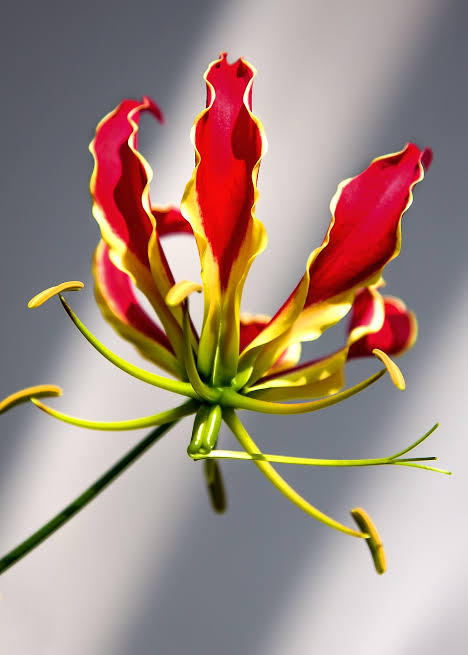
Norma Selner / Gloriosa
fame and honor.
#back at it with the flower symbolism again!#solo leveling#cha hae in#park kyung hye#sung jin ah#lee ju hee#park hee jin#lee bora#sl gina#han semi#jung ye rim#seo ji woo#yoo soo hyun#norma selner#han song yi
21 notes
·
View notes
Text
Upcoming Kdrama June 2023 🩷
5/6: the Villain of Romance with Baro, Ha Seung Ri. 10 episodes; romance. Trailer
9/6: Bloodhounds with Woo Do Hwan, Lee Sang Yi, Park Sung Woong. 8 episodes; action, thriller, crime. Trailer
17/6: See You in My 19th Life with Shin Hye Sun, Ahn Bo Hyun. 12 episodes; rom-com, fantasy. Trailer
17/6: King the Land with Im Yoon Ah, Lee Jun Ho, Go Won Hee. 16 episodes; rom-com. Trailer
19/6: Lies Hidden in My Garden with Kim Tae Hee, Im Ji Yeon, Kim Sung Oh. 8 episodes; thriller, mystery. Trailer
23/6: Numbers with Choi Jin Hyuk, Yeon Woo, Kim Myung Soo. 12 episodes; mystery, business. Trailer
23/6: Revenant with Kim Taeri, Oh Jung Se, Hong Kyung. 12 episodes; mystery, thriller, supernatural. Trailer
26/6: Heartbeat with Taecyeon, Won Ji An, Yoon So Hee. 16 episodes; rom-com fantasy. Trailer
28/6: Miracle Brothers with Jung Woo, Bae Hyun Sung, Lee Ki Woo. 10 episodes; mystery, drama. Trailer
30/6: Celebrity with Park Gyu Young, Kang Min Hyuk, Lee Chung Ah. 12 episodes; thriller, mystery. Trailer


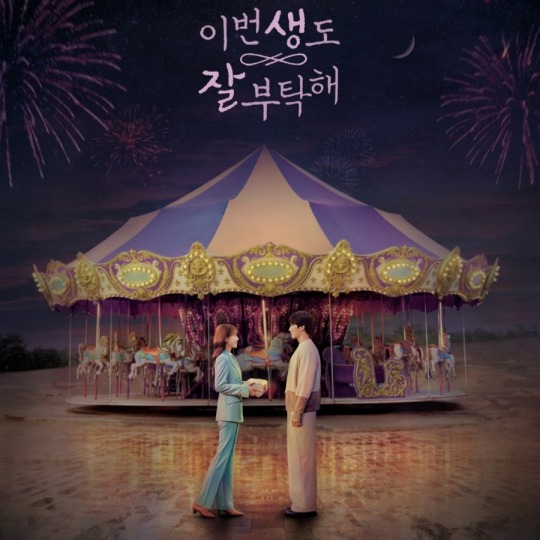
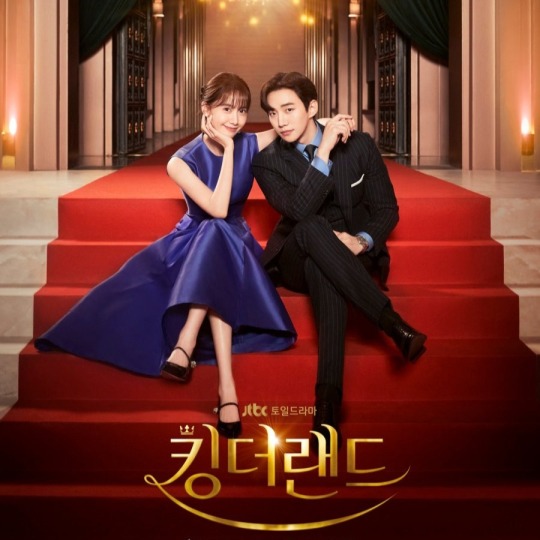
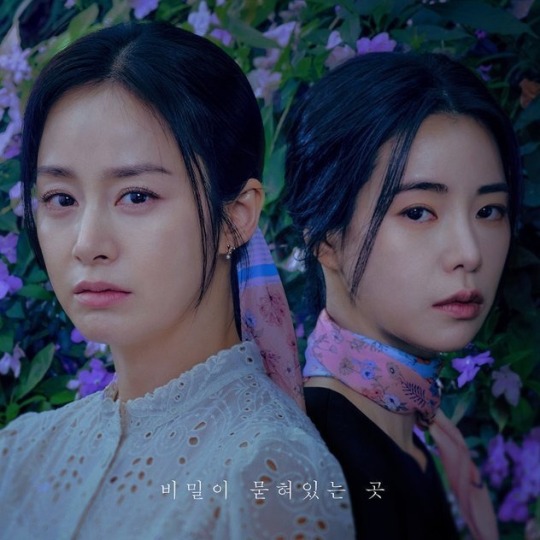
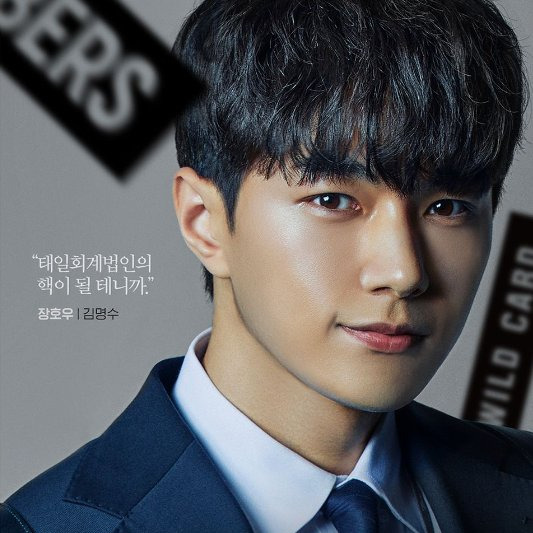

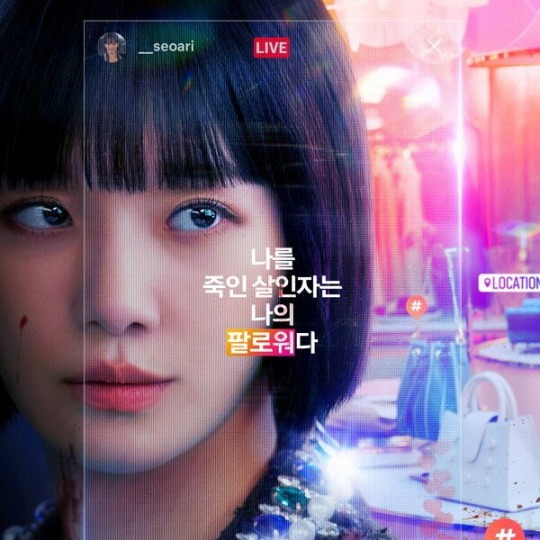


Where can I find the time to watch so many shows? 🥲
*REBLOG FOR UPDATES*
#kdrama#upcoming kdrama#june 2023#the villain of romance#bloodhounds#woo do hwan#lee sang yi#see you in my 19th life#ahn bo hyun#shin hye sun#king the land#im yoona#lee junho#lies hidden in my garden#kim tae hee#im ji yeon#numbers#choi jin hyuk#kim myung soo#revenant#kim taeri#heartbeat#taecyeon#won ji an#miracle brothers#jung woo#celebrity#Netflix celebrity#park gyu young
155 notes
·
View notes
Text
On the 25th of January, thirteen years ago, AFTERSCHOOL released their third Japanese single album, Rambling girls / Because of you.



"Rambling Girls" is an upbeat, dance-pop track showcasing the group's fierce energy and stylish choreography, while "Because of You" is a Japanese version of their Korean hit, delivering emotional vocals and a sleek, melancholic melody. The single highlights AFTERSCHOOL's versatility and their smooth transition into the Japanese music market.
youtube
#AFTERSCHOOL#Nana#Jooyeon#Kahi#Lizzy#Uee#Jung Ah#Raina#E-Young#After School#Im Jin-ah#Lee Joo-yeon#Park Ji-young#Park Soo-young#U-ie#Jung A#Oh Hye-rin#Noh Yi-young#Park Soo-ah#Kim Yu-jin#Kim Jung-ah#Rambling girls / Because of you#Rambling girls#J-pop#Girl Groups#2nd Gen#Youtube
4 notes
·
View notes
Text

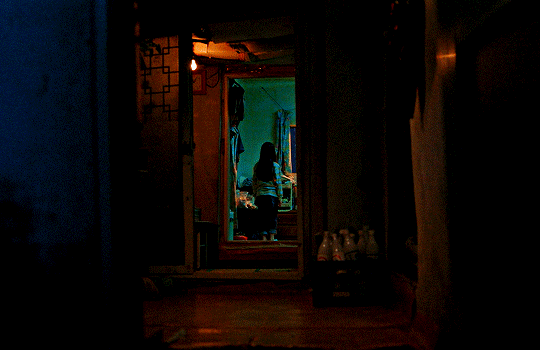
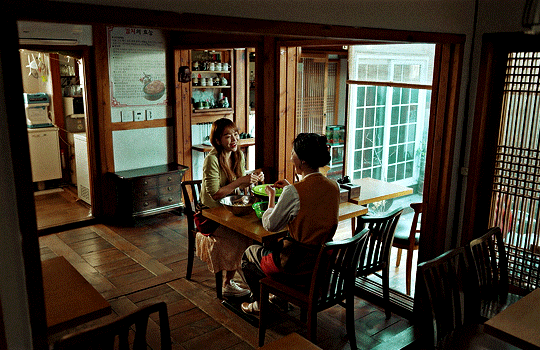
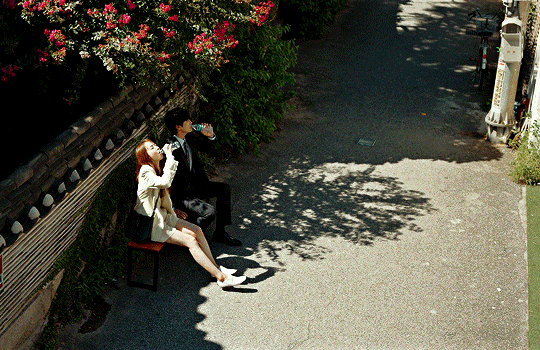
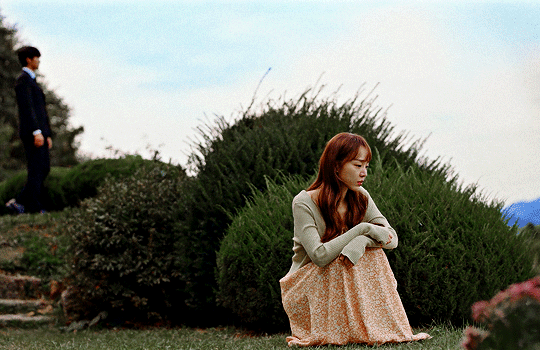
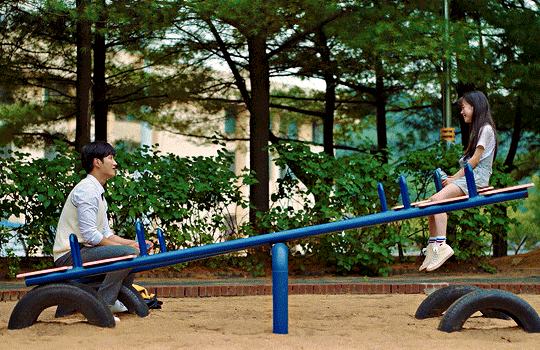

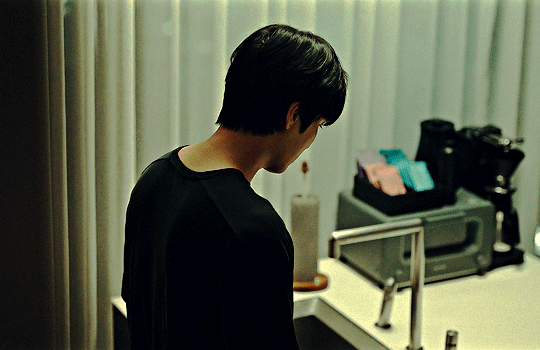

이번 생도 잘 부탁해 SEE YOU IN MY 19th LIFE (2023)
#see you in my 19th life#netflixedit#adaptationsdaily#kdramaedit#kdramadaily#asiandramasource#dailyasiandramas#tvgifs#tvedit#flashing gif#mo.gif#19thlife*#ban ji eum#moon seo ha#kim ae kyung#yoon cho won#ha do yoon#shin hye sun#ahn bo hyun#ha yoon kyung#ahn dong goo#cha chung hwa#park so yi#there's some sort of color journey going on here i promise
94 notes
·
View notes
Text
My Demon

TV Shows/Dramas watched in 2024
My Demon (2023/24, South Korea)
Director: Kim Jang Han
Writer: Choi Ah Il
Mini-review:
Look, I'm not gonna lie. I started this drama for a very superficial reason: Kim Yoo Jung and Song Kang are one of the most gorgeous couples I've ever seen. And tbh, that's one of the things that kept me watching until the end. The first half was pretty fun, thanks to their will-they-won't-they dynamic and some really funny supporting characters and recurring gags. Unfortunately, it began to drag around the middle part, and then it got more and more boring with each passing episode. By the time the final episode came out, I no longer cared about the plot, the characters or anything else (although the ending itself was quite nice). With all that in mind, I can't help but think My Demon would have worked much better as a movie.
#my demon#kim jang han#choi ah il#kim yoo jung#song kang#lee sang yi#kim hae sook#jo hye joo#lee yoon ji#kim tae hoon#jo yun hee#kang seung ho#seo jung yeon#heo jung do#hong jin ki#park jin woo#lee ji won#jung soon won#fantasy#romance#fantasy romance#romantic comedy#romcom#kdrama#k drama#south korea#2024 tv shows and dramas
12 notes
·
View notes
Text
🌼🌼2024 MY KDRAMA WATCHLIST AWARDS 🌼🌼
🌼🌼🌼🌼🌼🌼🌼🌼PART 2🌼🌼🌼🌼🌼🌼🌼🌼🌼
Welcome to the second part or the award show, if u missed part 1 which cover KDRAMA WATCHLIST that I watched from January and June
Here are the link
Let's continue to part 2 ( July2024- December 2024)
Best Reunion and Rekindle Love Drama awards,goes to
What Comes After Love

This is a mix of japanese and korean drama in Korean production.
A short drama with 6 episode but leave deep impression to me.
The love story is so good that I wish for more.
The excellent and cute chemistry between kentaro and se young is just undeniable.
And I glad it's a happy ending too😍
Next,
Best cute and adorable breakup but get back drama awards , goes to
Cinderella at 2am

First time of me seeing this kinda cute and sweet drama.
And it's about breakup but not really is..but truly is as they are so sweet.
But pain is there too,that's how excellent this drama.
Also moon sang min is super cute here😍😍😍😍
Plus happy ending 😘
Best Second Male deserve to be main couple than first male lead drama, goes to
Dear Hyeri

In my long lasting history in KDRAMA watching history ,never have I ship a second male lead couple with female lead more than I ship the main couple.
Usually I do, but not so overated that I dismiss the main couple coz usually the main couple always win my heart
But not in this drama ..it did make me like main couple a bit at the end but it was just too toxic and the writernim did my second man lead too harsh even till the end.
I'm so disappointed and angry with writernim regarding that..like it's not done that u did not make him together with female lead..but u just did dirty by keep making them together in a place where he have to watch them together..fuck writernim.
Special mention to my favorite man Kang Joo Yeon.♥️
Next,
Best Demon Judge of the year goes to,
The Judge from Hell

This was unexpected actually..but it was great
Good storyline and excellent acting.
And Season 2 is confirmed from what I read as the ending also hanging with a unsolved answers.
Love how she does not give a damn at first but end up being a good demon🤭
Also a love story is included and the finale kiss is so satisfying.😍😍😍
Best on why to get married drama awards ,goes to

Again another unexpected of my drama choice and I glad I watch it
A simple ,sweet and nice drama with bits of comedy in it.
A drama on finding the reason to get into marriage.or knowing if we qualified to be married.
Happy ending+ finale kiss also included🤩
Best Still confused but whatever drama awards ,goes to
Light Shop

As I'm still confused but refuse to understand more 😅 but still a great drama
A drama on dead and the living coexist or not ,afterlife maybe
Nonetheless..I enjoyed it.
The acting of every actor and actress was amazing.
The finale is a crying river so prepare tissue👍
Lastly,
Best Friend to Lover + Reunion Drama goes to
Love Your Enemy

This drama ended on today(29/12/24) before the year of 2024 ended.
Therefore making it the last and great drama I watch for 2024 and I glad is this wonderful drama
Amazing chemistry and good storyline .
Also happy ending😍
With this, the part 2 of My Kdrama Watchlist Award has ended.
But it's not over till it's over .
Do read part 3 ( best couple award) which is the last part of the awards show🤭
Thank you for reading my humble award show

#2024#korean drama#my kdrama watchlist awards#what comes after love#cinderella at 2am#dear hyeri#the judge from hell#marry you#light shop#love your enemy#tvn#jtbc#mbc#viu#netflix#sbs#part 2#lee se young#kentaro sakaguchi#shin hyun been#moon sang min#park shin hye#lee yi kyung#jo soo min#ju ji hoon#park bo young
4 notes
·
View notes
Text

NO GAIN, NO LOVE
GENRES: Comedy, Romance
SUMMARY: When love is a game of wins and losses, sometimes it’s difficult to know when you’ve won the jackpot.
THIS SHOW HAS EVERYTHING: Selfless foster parents, childhood trauma, murder, stray cats, wedding cash, funeral cash, distorted memories, shaggy hair-dos, boxes of dildos, erotic friend fiction, terrible exes, and corporate greed.
HOT TAKE: Just like the main character's outlook on life's wins and losses, there's a lot to love about this show...but there's also a lot to dislike.
I love the body and sexual positivity of this show. These women understand that sex and romance come in many forms and there's no taboo surrounding their support and their own satisfaction. I love the blunt communication in this show. Everyone says what they mean when they mean it and there's no tropey, missed-opportunity silence.
The show tries to make fun of established drama tropes in a cheeky, meta way, and in some ways it works. For other plot lines that just don't hit the landing, it makes you realize the last time you heard about it was episode 1.
I really want to love Kim Young Dae for more than his pretty face. HIs acting has been getting better, but I think he thinks that his face acting is more effective than it actually is. I think this show has finally shown me that I enjoy him more in comical scenes where he can use a range of emotion more effectively than the steely-eyed romancer.
#no gain no love#shin min ah#kim young dae#lee sang yi#han ji hyun#lee yoo jin#go wook#kim hye hwa#korean drama#kdramas#kdramadaily#kdramanetwork#kdramasource#kdramareview#kdrama#kdrama review#hallyu#hot take
4 notes
·
View notes
Text
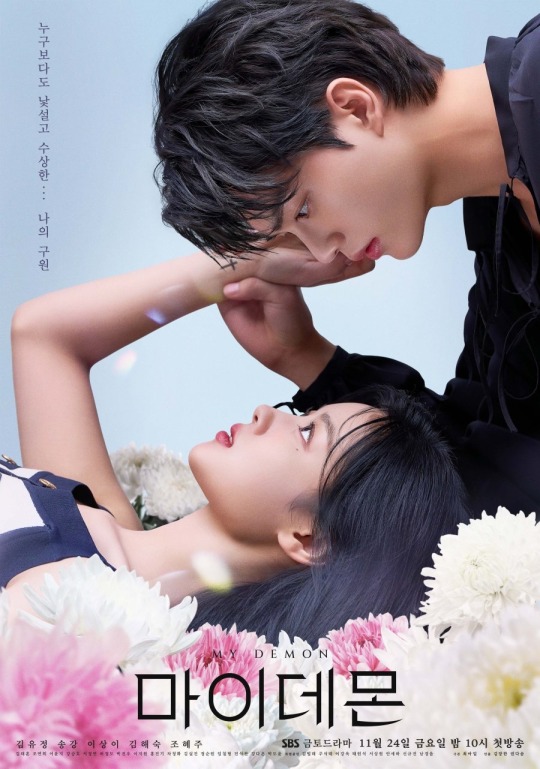
My Demon. 8
Story: 8
Acting: 10
Chemistry: 10
Comparable to: Goblin (kdrama); Tale of the Nine Tailed (kdrama); Doom at Your Service (kdrama)
If you’re familiar to the dramas above then you’ll probably absolutely love this drama. It’s a cheesy romcom fantasy that you switch your brain off. You squee, you giggle, you roll your eyes at the ridiculous dialogue and setups the characters are in/deliver but secretly love it too. I will not stop laughing and squeezing over that kiss garden. Totally ridiculous, totally cute. Oh and yeah chemistry in this, top tier.
#my demon#netflix#kdrama#kim you jung#song kang#lee sang yi#kim tae hoon#kim hae sook#jo hye joo#lee yoon ji#cha chung hwa#romantic comedy#fantasy#supernatural#romantic drama#thriller#fav#rec#❤️
6 notes
·
View notes
Text
My Demon
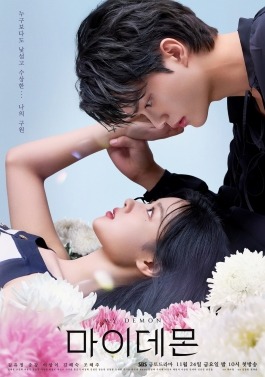
Loved this series. It had a balance of cute, drama, and suspense. The characters for the most part were grayish and complex. The portrayal of God as female, homeless and gambler was interesting. The relationship between her and the demon was one complex too. It felt like ying and yang. Human emotions make the demon and god empathetic towards humans' pain. This story tackles domestic abuse and child abuse, and emphasizes on how silence and turning a blind-eye to these situations can hurt a loved one as well. It makes you reflect on these issues.
Again, it's a good drama to watch.
Poster from Wikipedia - https://en.wikipedia.org/wiki/My_Demon
#korean drama#my demon#kim you jung#song kang#lee sang yi#kim hae sook#park tae hoon#lee yoon ji#kang seung ho#Cho Hye-Joo#Heo Jung-Do#Seo Jung-Yeon
4 notes
·
View notes
Text
A playlist that I was listening to a month ago with 80s/90s songs from all over the world
1. 박영미 - 나는 외러움 그대는 그리움 / Park Young Mi - I Am Loneliness, You Are Longong
2. Mike Oldfield - Moonlight Shadow
3. Kim Carnes - Bette Davis Eyes
4. Kim Carnes - Black And White
5. Mike Oldfield - Man In The Rain
6. 최선경 - 사랑을 그대 품안에 OST 테마 2 / Choi Sun Kyung - Love In Your Arms OST Theme 2
7. Tracy Chapman - Fast Car
8. 혜은이 - 당신은 모르실거야 / Hye Eun Yi - You Wouldn't Know
9. 이지연 - 그때는 어렸나봐요 / Lee Ji Yeon - We Were Young Then
10. 김지연 - 찬바람이 불면 / Kim Ji Yeon - When The Cold Wind Blows
11. 岡村孝子 Okamura Takako - 夢をあきらめないで (Yume wo Akirane Mayide)
12. 이은하 - 미소를 띄우며 나를 보낸 그 모습처럼 / Lee Eun Ha - Like You Sending Me Away With A Smile
13. 강수지 - 이별이 가져온 것 / Kang Susie - What Breakup Brought
14. 유재하 - 가리워진 길 / Yoo Jae Ha - Hidden Road
15. Cyndi Lauper - Time After Time
16. 松田聖子(Matsuda Seiko) - Sweet Memories
17. Chelsia Chan (진추하) - You're A Part Of Me
18. Carpenters - I Need To Be In Love
19. 하수빈 - 더이상 내게 아픔을 남기지마 / Ha Soo Bin - Don't Leave Me In Pain Anymore)
20. 햇빛촌 - 유리창엔 비 / Sunlight Village - Rain In The Glass Window
[출처] 요즘 듣고 있는 아련한 노래 플레이리스트!|작성자 밤바람 봄바람
(omg??? naver blog automatically inserts sources/credits??? OMG SLAY)
#this is a lot#here we go folks#park young mi#나는 외러움 그대는 그리움#mike oldfield#moonlight shadow#i think i like rock more than I admit to#kim carnes#bette davis eyes#this is a bop#maggie reilly#90s kdrama ost were seriously so iconic#hye eun yi#she is a 70s singer#tracy chapman#lee ji yeon#lee jiyeon#i really want to increase her online presence smh#so that if she ever searches herself up she'll find something talking about her music and not her “rise and fall”#kang susie#she is a literal QUEEN#matsuda seiko#this list is legends only smh#ha soo bin#yoo jaeha#he is also a damn legend#RIP yoo jae ha#carpenters#햇빛촌#lee eun ha
2 notes
·
View notes
Text








#boys over flowers#geum jan di#gu jun pyo#so yi jung#yoon ji hoo#lee min ho#ku hye sun#kim beom#kim hyun joong#2009#kdrama
9 notes
·
View notes
Text

THE THIRD CHARM // KDRAMA DİZİ YORUMU
UYARI : Yazılar genel olarak spoiler içerebilir. İçermeyedebilir.
İmdb puanı: 6,2 Benim puanım: 5
Drama: The 3rd Charm / The Third Charm
Hangul: 제3의 매력
Director: Pyo Min-Soo
Writer: Park Hee-Kwon, Park Eun-Young
Date: 2018
Language: Korean
Country: South Korea
Cast: Seo Kang-Joon, Esom, Yang Dong-Geun, Lee Yoon-Ji, Min Wook-Hyuk, Kim Yoon-Hye, Lee Sang-Yi, Park Gyu-Young
Çok güzel duygularla başlayıp, çok büyük hayal kırıklığı yaşadığım ve inanılmaz zorla bitirdiğim nadir dizilerden biriydi. Hikayesi; On Joon-Young(Seo Kang-Joon) ve Lee Young-Jae(Esom) arasındaki 12 yıllık ilişkiyi anlatıyor. Bu süre zarfında ilişkinin bir çok modelini bizlere gösteriyor. Üniversite yıllarında tanışan ikilinin aralarındaki etkileşim üçer yıllık dört mevsimden oluşuyor gibiydi.
Böyle anlatırken bile kulağa hoş geliyor olabilir ama izlemek benim için tam bir işkenceydi. Seo Kang-Joon’u “Are You Human?” ve “When the weather is Fine” dizilerinde izlemiştim. Bayılmamıştım ama beğenmiştim. Birazda onun etkisi oldu başlamamda. Ama bu diziden sonra bir süre kendisine ara verdim. Esom’u ise ”Because This Is My First Life”, “Taxi Driver” ve “Black Knight” dizilerinde izlemiştim. Diğer dizilerde hiçbir şey hissetmemiştim kendisine ama bu dizide baya soğudum. Başlamamda hiçbir etkisi yoktu.
On Joon-Young, 20 yaşında üniversite öğrencisidir. Giyimine önem vermeyen, gözlüklü, çalışkan ve planlı bir gençtir. Romantik filmleri seven, şeftali tutkunu ve hobisi yemek yapmak olan genç bir delikanlıdır. Bu içine kapanık yaşantısından biraz çıkması için arkadaşlarının zoru ile toplu randevuya çıkar. Hiç beklenmedik şekilde gönüllü gelenler değil de zorla getirilen Joon-Young da aradığını bulur. Young-Jae ise erkeğimizin tam tersidir. Plansız programsız anı yaşar. Küçük yaşta anne babasını kaybeden kızımız abisi ile yaşamaktadır. Üniversiteye gitmemeyi seçip bir kuaför dükkanında çalışmaktadır. Haksızlığa sessiz kalamayan fevri bir yapısı ve zengin olma hayali vardır.
Zıt kutuplar birbirini çeker mantığından mıdır nedir bilmiyorum, bu iki alakasız insan dizi bu ya aşık olurlar. Öncelikle bu aşk bana hiç geçmedi, onu da söyleyeyim. Uzun süren bir ilişki sonrası asla anlam veremediğiniz olaylar ve hikaye akışı sonucunda (spoiler olarak bakmayın dizinin konusu zaten bu) ayrılıyorlar. 20 yaşında tanışan çift 27 yaşında tekrar bir araya geliyor, bambaşka anlam veremediğiniz olaylar ve hikaye sonucu kopup, 32 yaşında tekrar karşılaşıyorlar. İşte izleyici olarak onların bu anlamsız karşılaşmalarından oluşan hikaye örgüsünü izliyoruz.
3 dönem gibi görünen bu ilişki önce “eğlenceli” aşamasından geçiyor. Burada eğlence anlayışı herkesin kendinedir tabi ki ama ben şahsen hiç yakıştıramadığımdan olacak ki eğlenmedim. İkinci periyotta ise romantik ve tartışmalı bir dönem izliyoruz. Bana daha çok pişmanlıklarla dolu gibi geldi. Üçüncü dönem ise, kasvetliydi. Evet bu dönem kasvetliydi bu kısımda katılıyorum. Yani o kadar zorla bir arada bulunuyorlar gibi bir ilişkiydi ki, dizi boyunca ikinci kadın ve ikinci adamlarla yollarına devam etmelerini istedim. Ve ilişkilerini yürütememelerinin nedenine “bir tarafın daha fazla sevmesi” gibi saçma bir bahane söylendi.
Çok uzatmaya gerek olduğunu düşünmüyorum. Kötü bir hikaye kötü bir ikili, kötü bir ilişki izledik. Üstelik daha fazla nasıl drama yaparız telaşesi ile bize verdikleri dozlar aşırı ve gereksizdi. Hiç kimseye tavsiye etmem. İzlemeyin.
OST:
CJM - Attractive
Raven Melus
BAŞKA NELER VAR ?
FOTOĞRAFLAR
#The 3rd Charm#The Third Charm#kdrama#yorum#inceleme#dizi#eleştiri#kore#Seo Kang-Joon#Esom#Yang Dong-Geun#Lee Yoon-Ji#Min Wook-Hyuk#Kim Yoon-Hye#Lee Sang-Yi#Park Gyu-Young
0 notes
Text
Branding in Seongsu-dong
Branding in Seongsu-dong (Serie 2024) #ParkSolomon #YangHyeJi #KimJieun #YeonhongAhn #JungYiRang Mehr auf:
Serie / 브랜딩 인 성수동 Jahr: 2024- (Februar) Genre: Comedy / Romantik / Thriller Hauptrollen: Park Solomon, Yang Hye-Ji, Kim Ji-eun, Yeon-hong Ahn, Jung Yi-Rang … Serienbeschreibung: Ein Büro-Liebesthriller, der beschreibt, was passiert, wenn sich nach einem Kuss die sanfte Seele einer Praktikantin, die eine zärtliche Beziehung sucht, mit dem skrupellosen Leiter des Marketingteams vertauscht…

View On WordPress
0 notes